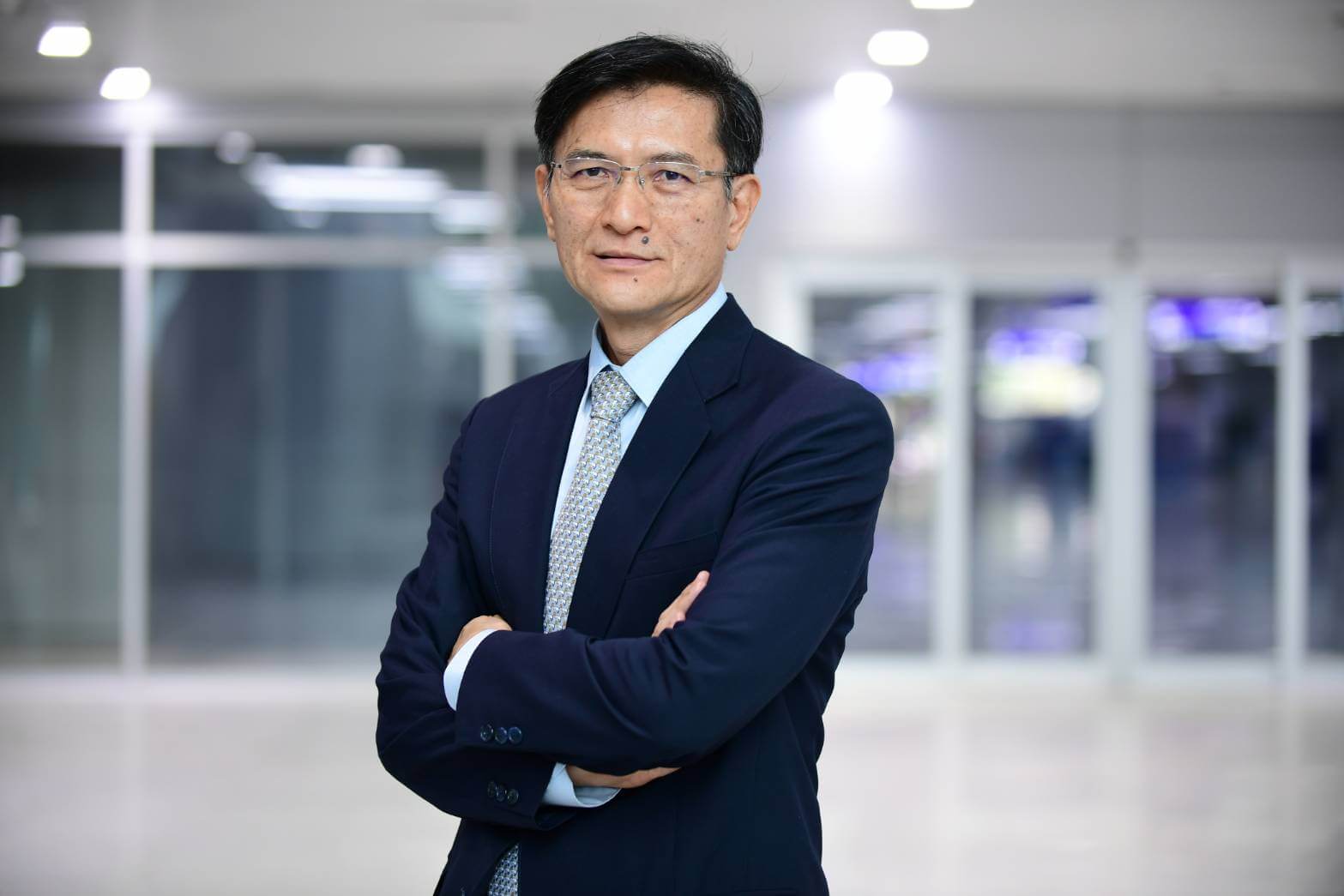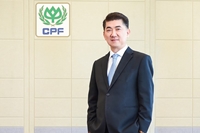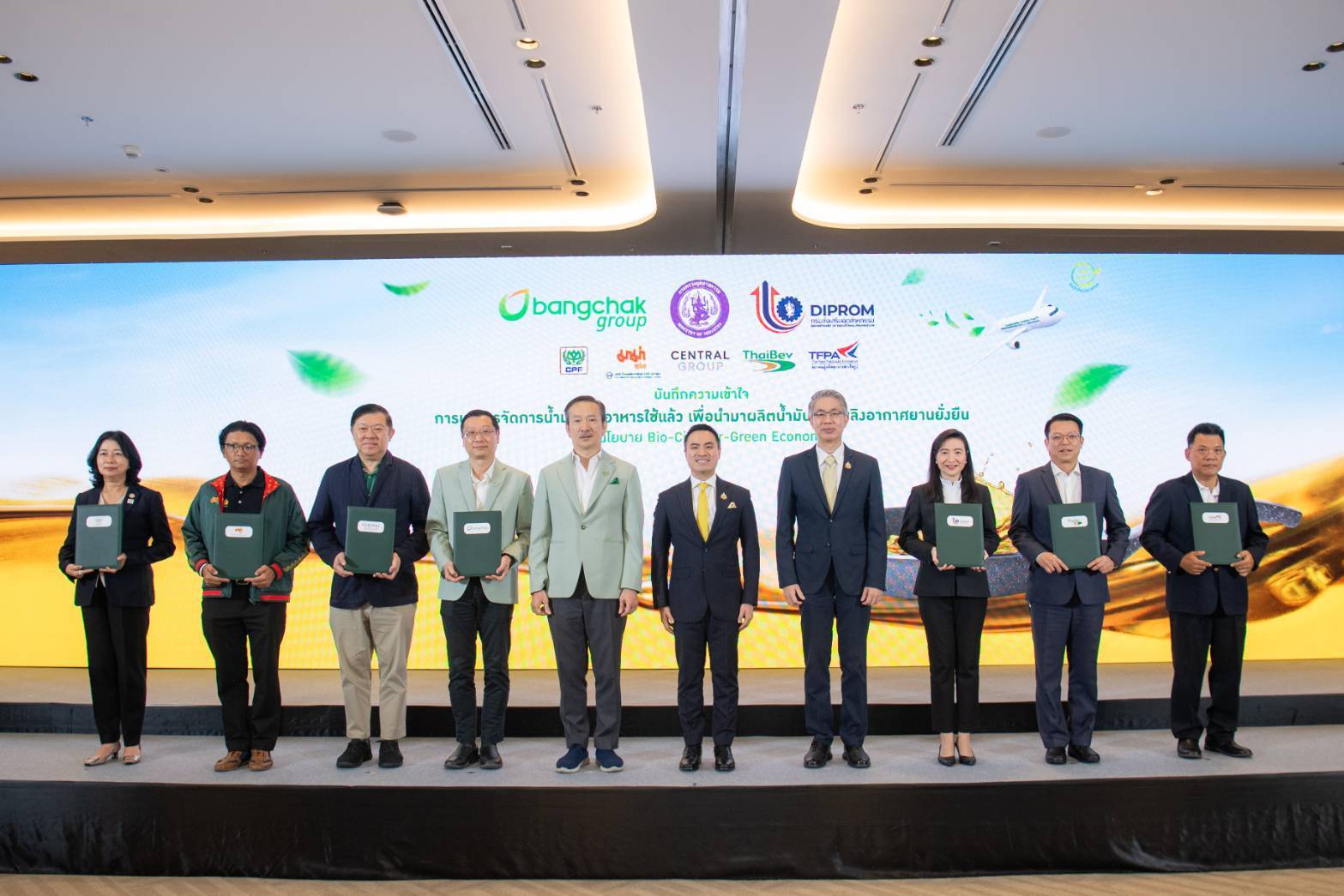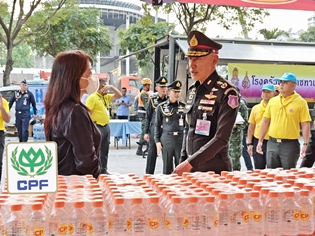

Charoen Pokphand Foods Public Company Limited (CP Foods) joins hands
with Thai and multinational organizations to promote eco-friendly and non-IUU fisheries across the world in an effort to build a
sustainable shrimp supply chain.
Mr. Pairoj Apiruknusit, CP Foods’ Executive Vice President, said that the company operates agro-industrial and food business, focusing on the responsible use of natural resource, which included sourcing of fishmeal raw materials. It has a policy of sourcing legal fishmeal from 100% by-products from aquaculture plants, all of which must be certified to the MarinTrust standard, a standard that complies with the Food and Agriculture Organization's Code of Conduct for responsible fisheries. This is to prevent illegal, unreported and unregulated fishing, and participate in the protection of natural resources and marine environments.
“CP Foods is only a buyer of fishmeal and producer of farmed shrimp as well as shrimp feed” Mr.Pairoj said we realizes fishing industry is the source of fishmeal, therefore the company has a strong commitment on promoting sustainability in the seafood supply chain, and solving global concerns such as raw material traceability, marine resource degradation, unfair labor practices, human rights violation and impacts of illegal fishing on the community.
In an effort to solve the problems, CP Foods has joined hands with other Thai seafood industry stakeholders, including the private sectors, government agencies, and civil society, to develop best practices for fishing industry, including the Thai Sustainable Fisheries Roundtable (TSFR) to the Fishery Improvement Project (FIP) for trawl fisheries in the Thai seas in the Gulf of Thailand.
CP Foods is also a part of an industry-level joint task force to promote sustainability in the seafood supply chain (Seafood Task Force) to raise fisheries standards in the region in accordance with the criteria of the MarinTrust, (formerly IFFO RS) for multi-species fisheries such as the guideline for sustainable fishing gear and adoption of Vessel Monitoring System (VMS) to prevent illegal fishing. At present, the Fishery Action Plan (FAP), developed by the Seafood Task Force, has been onto the MarinTrust Improver Program (IP) since November 2020.
The multispecies fishery criteria aim at finding the best practices for highly complex fisheries in Thai seas in which sometimes multiple marine species are regularly caught.
CP Foods also co-founded the Fishermen Life Enhancement Center (FLEC) in Songkhla Province since 2015 to help eliminated forced labor and Illegal labor issues in the Thai fishing industry along with improving the quality of life of fishermen and their families.
Outside of Thailand, the company is a member of the Seafood Business for Ocean Stewardship (SeaBOS) to protect marine resources and the environment. CP Foods and other SeaBOS members have agreed on a mutual goal to produce IUU-free products by October 2021. With the Global Dialogue on Seafood Traceability (GDST), CP Foods is running a pilot project on traceability system throughout the shrimp supply chain, starting from fishing boats to shrimp processing plants.
Also, the company has transferred knowledge gained from participated sustainability projects in Thailand and abroad to its partners to enable them to comply with international standards. This will not only help CP Foods' supply chain be sustainable, but also to increase the competitiveness of the partners on the multinational market.
“From the efforts, CP Foods is recognized worldwide as a seafood producer with a sustainable production. This reflects on the latest Seafood Stewardship Index (SSI) in which the company received the highest score in the human rights category and sustainable supply chain management and ranked 3rd overall among the top 30 companies in the global seafood industry.” Mr Pairoj said./









_1742963914.jpg)